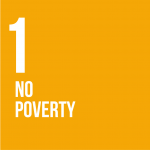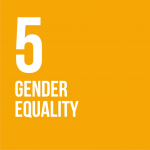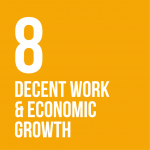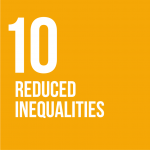Human rights issues have been moving up on the responsible investment agenda in recent years. The COVID-19 pandemic and the Black Lives Matter movement have provoked even more pointed discourse on the topic. The European Union’s current efforts to introduce rules to hold companies accountable for social and environmental risks in their supply chains further accelerate that ascent. This wave of legal requirements and normative expectations is impacting financial markets worldwide, with responsible business regulations already in place or quickly becoming valid.
United Nations Guiding Principles on Business and Human Rights uptake
There are already guidelines in place to address human rights breaches in the private sector. This year marks the 10th anniversary of the United Nations Guiding Principles on Business and Human Rights (UNGPs). The Guiding Principles provide a global framework and clarifies the role of business enterprises, including investors, with respect to human rights. Under the UNGPs, companies are obliged to undertake human rights due diligence. The process is meant to ensure that potential adverse impacts stemming from companies’ activities in global operations, supply chains, and business relationships are identified, addressed, monitored, and remediated.
Over the past decade, a growing number of companies have publicly committed to the UNGPS. Corporates are working on internal learning and practices for the different aspects of respect for human rights and addressing negative impacts in their operations and across the value chains. Even though there is no comprehensive survey on companies' respect for human rights, benchmarks and ratings that have emerged over the years indicate some progress and opportunity for improvement. According to the 2020 Corporate Human Rights Benchmark, a growing number of companies are taking up the UNGPs, with their commitments and procedures described as strong; still, too few companies manage their responsibility adequately. For example, 46.2 percent of all companies assessed in 2020 did not score any points under the due diligence indicators.1 Benchmarking initiatives and stakeholder assessments also highlight the disconnect between improvements at the policy level and human rights due diligence in practice, both generally and on specific human rights aspects.2
The role of investors and governments
Institutional investors have a systemic influence over financial markets and the behavior of companies within them. Recognizing this, governments should increasingly seek to activate the leverage of investors to drive sustainable economic development and help achieve the vision laid out by the 2030 Sustainable Development Agenda. The development of national action plans on business and human rights has been one of the visible signs of uptake of the UNGPs by states. As of 2021, 25 countries have such plans: two with chapters on business and human rights within their wider human rights strategy, and 18 in the process of developing dedicated plans.3 With regulation on human rights due diligence already implemented in some jurisdictions, more measures in the pipeline converging around UNGPs investors can advance their approach to social issues by applying those frameworks now. Leading investors also recognize that preventing and mitigating actual and potentially negative outcomes for people results in better financial risk management and helps to align their activities with the evolving demands of stakeholders.4
Active ownership as means to protect shareholder value
Sustainalytics recognizes the crucial role of thorough due diligence as means to protect shareholder value. Therefore, as part of our Stewardship Services, we recently launched the Human Rights Accelerator thematic engagement. Throughout this three-year engagement, we aim to add support and momentum to the second decade of the UNGPs. We will encourage companies to develop policies and practices that can help them better prepare for and manage some of the most commonly faced human rights challenges. The engagement will cover both overarching precaution and resilience in line with the UNGPs, and sector- or location-specific risks. Leveraging Sustainalytics’ extensive experience in human rights management, we will advocate for effective and scalable solutions for business activities that are particularly high risk from a human rights perspective. The Human Rights Accelerator engagement aims to ensure that companies respect fundamental human rights and, in doing so, also mitigate financially material risks.
The thematic engagement will explore, with targeted companies, their role, the challenges, and practicalities of addressing human rights issues, identifying best practices and barriers. From this, we expect to gather insights that can inform other portfolio company conversations on social aspects, bringing together investors and companies from various industries to discuss challenges through our virtual roundtables. Our dialogue will also align with UN Sustainable Development Goals (SDGs), No Poverty (1), Gender Equality (5), Decent Work and Economic Growth (8), and Reduced Inequalities (10).




Hear from Sustainalytics' Ewelina Łukasik-Morawska, Manager, Stewardship Services, as she speaks to a human rights expert and an investor representative about what roles can companies and investors play in addressing issues that impact human rights. Watch the video series on demand. For more information about the Human Rights Accelerator thematic engagement, contact us.
Sources:
1. Corporate Human Rights Benchmark WBA (worldbenchmarkingalliance.org)
2. The UN Guiding Principles on Business & Human Rights and Indigenous Peoples. Progress achieved the implementation gap and challenges for the next decade. (10.10.2021) at iwgia_final.pdf (ohchr.org)
3. OHCHR | State national action plans on Business and Human Rights
4. Investor Statement mHREDD FINAL 6 October 2021.pdf (investorsforhumanrights.org)

.png?Status=Master&sfvrsn=586e88be_1)



